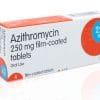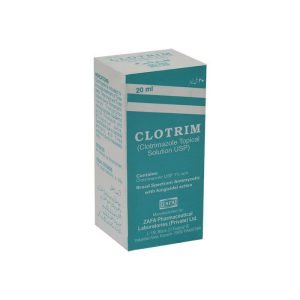Itopride | A Gastroprokinetic Agents
| Introduction | Itopride, marketed under the brand name of Ganaton, ITP, Nogerd and more, is a prokinetic benzamide derivative. Itopride is a dopamine D2 receptor antagonist and acetylcholine esterase inhibitor that is used to treat symptoms of functional dyspepsia such as nausea and vomiting. |
| Class of Medicine | ITOPRIDE HYDROCHLORIDE belongs to a class of drugs known as ‘gastroprokinetic agents, gastrokinetic agents, or propulsives,’ which are primarily used to treat disorders associated with decreased gastrointestinal motility. |
| Mode of Action | Itopride has both anticholinesterase (AchE) and dopamine D2 receptor antagonistic activity. M3 receptors are well known to exist on the smooth muscle layer throughout the gut, and acetylcholine (ACh) released from enteric nerve endings stimulates smooth muscle contraction via M3 receptors. The enzyme AChE hydrolyzes the released ACh, inactivating it and thus inhibiting gastric motility, resulting in a variety of digestive problems. Dopamine, in addition to ACh, is found in significant amounts in the gastrointestinal tract and has several inhibitory effects on gastrointestinal motility, including the reduction of the lower esophageal sphincter and intragastric pressure. These effects appear to be mediated by the D2 subtype of dopamine receptors and appear to result from suppression of ACh release from myenteric motor neurons. Itopride removes the inhibitory effects of dopamine D2 receptor antagonism on Ach release. It also inhibits the enzyme AchE, preventing ACh degradation. The net result is an increase in ACh concentration, which promotes gastric motility, raises lower esophageal sphincter pressure, speeds up gastric emptying, and improves gastro-duodenal coordination. Itopride’s dual mode of action is distinct and distinct from the actions of other prokinetic agents on the market. |
| Medical Uses | Itopride is typically used to treat GI symptoms caused by decreased GI motility: non-ulcer/dysmotility dyspepsia (gastric “fullness”, discomfort, and possible pain) Gastroparesis (delayed gastric emptying) Anorexia Heartburn \Sregurgitation Other possible gastric, prolactin, or dopamine-related conditions include bloating, nausea, and vomiting. In placebo-controlled trials, itopride was shown to significantly improve symptoms in patients with functional dyspepsia and motility disorders.These studies concluded that itopride was significantly superior to placebo in terms of reducing the severity of symptoms of functional dyspepsia after 8 weeks of treatment, and that itopride yielded a higher rate of response than placebo in terms of significantly reducing pain and fullness. |
| Avaiability & Usage | ITOPRIDE HYDROCHLORIDE tablets are available in 50mg and 100mg strengths. Based on your medical condition, your doctor will advise you on how frequently you should take ITOPRIDE HYDROCHLORIDE. The usual dose is 50mg tab twice daily or 150mg once daily. |
| Side Effects | Itopride’s most common side effects are mild to moderate Abdominal pain Diarrhoea Rashes Giddiness Exhaustion Back or Chest pain Increased Salivation Constipation Headache Sleeping disorders Dizziness Galactorrhea GynecomastiaBecause of poor penetration across the blood brain barrier, adverse effects on the central nervous system are rare, though a slight increase in prolactin levels may occur. Prolactin levels are more likely to rise when taking itopride at high doses. |
| Important Warning | Itopride can cause leukopenia, or a decrease in the normal level of white blood cells, which can be fatal. |
| Available Brands | Ganaton ITP Nogerd |






